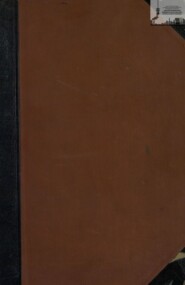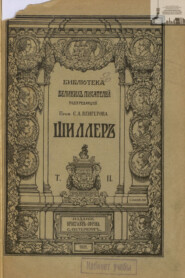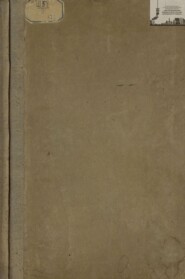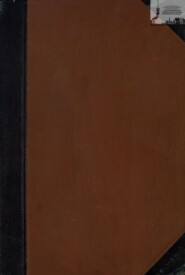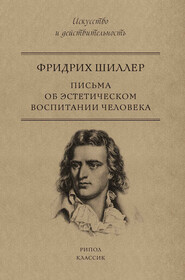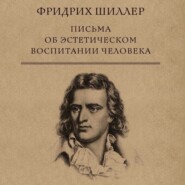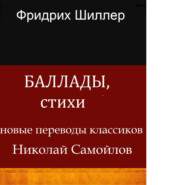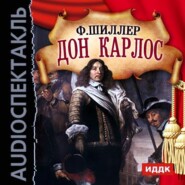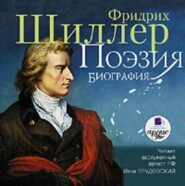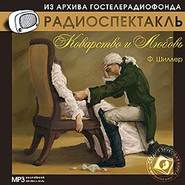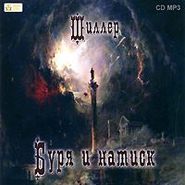По всем вопросам обращайтесь на: info@litportal.ru
(©) 2003-2024.
✖
The Robbers
Автор
Год написания книги
2017
Настройки чтения
Размер шрифта
Высота строк
Поля
SCHWEITZER (throwing the sword on the body). There let him rot! Be still, my comrades! Don't let such a trifle disturb you. The brute has always been inveterate against the captain and has not a single scar on his whole body. Once more, be still. Ha, the scoundrel! He would stab a man behind his back – skulk and murder! Is it for this that the hot sweat has poured down us in streams? that we may sneak out of the world at last like contemptible wretches? The brute! Is it for this that we have lived in fire and brimstone? To perish at last like rats?
GRIMM. But what the devil, comrade, were you after? What were you quarreling about? The captain will be furious.
SCHWEITZER. Be that on my head. And you, wretch (to RAZMANN) you were his accomplice, you! Get out of my sight! Schufterle was another of your kidney, but he has met his deserts in Switzerland – has been hanged, as the captain prophesied. (A shot is heard.)
SCHWARZ (jumping up). Hark! a pistol shot! (Another shot is heard.) Another! Hallo! the captain!
GRIMM. Patience! If it be he, there will be a third. (The third shot is heard.)
SCHWARZ. 'Tis he! 'Tis the captain! Absent yourself awhile, Schweitzer – till we explain to him! (They fire.)
Enter CHARLES VON MOOR and KOSINSKY.
SCHWEITZER (running to meet them). Welcome, captain. I have been somewhat choleric in your absence. (He conducts him to the corpse.) Be you judge between him and me. He meant to waylay and assassinate you.
ROBBERS (in consternation). What; the captain?
CHARLES (after fixing his eyes for some time upon the corpse, with a sudden burst of feeling). Oh, incomprehensible finger of the avenging Nemesis! Was it not he whose siren song seduced me to be what I am? Let this sword be consecrated to the dark goddess of retribution! That was not thy deed, Schweitzer.
SCHWEITZER. By heaven, it was mine, though! and, as the devil lives, it is not the worst deed I have done in my time. (Turns away moodily.)
CHARLES (absorbed in thought). I comprehend – Great Ruler in heaven – I comprehend. The leaves fall from the trees, and my autumn is come. Remove this object from my sight! (The corpse of SPIEGELBERG is carried out.)
GRIMM. Give us your orders, captain! What shall we do next?
CHARLES. Soon – very soon – all will be accomplished. Hand me my lute; I have lost myself since I have been there. My lute, I say – I must nurse up my strength again. Leave me!
ROBBERS. 'Tis midnight, captain.
CHARLES. They were only stage tears after all. Let me bring to memory the song of the old Roman, that my slumbering genius may wake up again. Hand me my lute. Midnight, say you?
SCHWARZ. Yes, and past, too! Our eyes are as heavy as lead. For three days we have not slept a wink.
CHARLES. What? does balmy sleep visit the eyes of murderers? Why doth it flee mine? I never was a coward, nor a villain. Lay yourselves to rest. At day-break we march.
ROBBERS. Good night, captain. (They stretch them selves on the ground and fall asleep.)
Profound silence. CHARLES VON MOOR takes up his guitar, and plays.
BRUTUS. Oh, be ye welcome, realms of peace and rest! Receive the last of all the sons of Rome! From dread Philippi's field, where all the best Fell bleeding in her cause, I wearied come. Cassius, no more! And Rome now prostrate laid! My brethren all lie weltering in their gore! No refuge left but Hades' gloomy shade; No hope remains! – No world for Brutus more!
CAESAR. Who's he that, with a hero's lofty bearing, Comes striding o'er yon mountain's rocky bed? Unless my eyes deceive, that noble daring Bespeaks the Roman warrior's fearless tread. Whence, son of Tiber, do thy footsteps bend! Say, stands the seven-hilled city firmly yet? No Caesar there, to be the soldiers friend! Full oft has he that orphaned city wept.
BRUTUS. Ha! thou of three-and-twenty wounds! Avaunt! Thou unblest shade, what calls thee back to light? Down with thee, down, to Pluto's deepest haunt, And shroud thy form in black, eternal night, Proud mourner! triumph not to learn our fall! Phillippi's altars reek with freedom's blood? The bier of Brutus is Rome's funeral pall; He Minos seeks. Hence to thy Stygian flood!
CAESAR. That death-stroke, Brutus, which thy weapon hurled! Thou, too, Brutus? – that thou shouldst be my foe! Oh, son! It was thy father! Son! The world Was thine by heritage! Now proudly go, Well mayst thou claim to be the chief in glory, 'Twas thy fell sword that pierced thy father's heart! Now go – and at yon gates relate thy story – Say Brutus claims to be the chief in glory, 'Twas his fell sword that pierced his father's heart! Go – Now thou'rt told what staid me on this shore, Grim ferryman, push off, and swiftly ply thine oar.
BRUTUS. Stay, father, stay! Within the whole bright round Of Sol's diurnal course I knew but one Who to compare with Caesar could be found; And that one, Caesar, thou didst call thy son! 'Twas only Caesar could destroy a Rome; Brutus alone that Caesar could withstand – Where Brutus lives, must Caesar die! Thy home Be far from mine. I'll seek another land.
[He lays down his guitar, and walks to and fro in deep meditation.]
Who will give me certainty! All is so dark – a confused labyrinth – no outlet – no guiding star. Were but all to end with this last gasp of breath. To end, like an empty puppet-show. But why then this burning thirst after happiness? Wherefore this ideal of unattained perfection? This looking to an hereafter for the fulfilment of our hopes? If the paltry pressure of this paltry thing (putting a pistol to his head) makes the wise man and the fool – the coward and the brave – the noble and the villain equal? – the harmony which pervades the inanimate world is so divinely perfect – why, then, should there be such discord in the intellectual? No! no! there must be something beyond, for I have not yet attained to happiness.
Think ye that I will tremble, spirits of my slaughtered victims? No, I will not tremble. (Trembling violently.) The shrieks of your dying agonies – your black, convulsive features – your ghastly bleeding wounds – what are they all but links of one indissoluble chain of destiny, which hung upon the temperament of my father, the life's blood of my mother, the humors of my nurses and tutors, and even upon the holiday pastimes of my childhood! (Shaking with horror.) Why has my Perillus made of me a brazen bull, whose burning entrails yearn after human flesh? (He lifts the pistol again to his head.)
Time and Eternity! – linked together by a single instant! Fearful key, which locks behind me the prisonhouse of life, and opens before me the habitations of eternal night – tell me – oh, tell me – whither – whither wilt thou lead me? Strange, unexplored land! Humanity is unnerved at the fearful thought, the elasticity of our finite nature is paralyzed, and fancy, that wanton ape of the senses, juggles our credulity with appalling phantoms. No! no! a man must be firm. Be what thou wilt, thou undefined futurity, so I remain but true to myself. Be what thou wilt, so I but take this inward self hence with me. External forms are but the trappings of the man. My heaven and my hell is within.
What if Thou shouldst doom me to be sole inhabitant of some burnt-out world which thou hast banished from thy sight, where darkness and never-ending desolation were all my prospect; then would my creative brain people the silent waste with its own images, and I should have eternity for leisure to unravel the complicated picture of universal wretchedness. Or wilt thou make me pass through ever-repeated births and ever-changing scenes of misery, stage by stage* – to annihilation?
[This and other passages will remind the reader of Cato's soliloquy
"It must be so, Plato; thou reasonest well." But the whole bears a strong resemblance to Hamlet's "To be or not to be;" and some passages in Measure for Measure, Act iii, Sc. 1.]
Can I not burst asunder the life-threads woven for me in another world as easily as I do these? Thou mayest reduce me into nothing; but Thou canst not take from me this power. (He loads the pistol, and then suddenly pauses.) And shall I then rush into death from a coward fear of the ills of life? Shall I yield to misery the palm of victory over myself? No! I will endure it! (He flings the pistol away.) Misery shall blunt its edge against my pride! Be my destiny fulfilled! (It grows darker and darker.)
HERMANN (coming through the forest). Hark! hark! the owl screeches horribly – the village clock strikes twelve. Well, well – villainy is asleep – no listeners in these wilds. (He goes to the castle and knocks.) Come forth, thou man of sorrow! tenant of the miserable dungeon! thy meal awaits thee.
CHARLES (stepping gently back, unperceived). What means this?
VOICE (from within the castle). Who knocks? Is it you, Hermann, my raven?
HERMANN. Yes, 'tis Hermann, your raven. Come to the grating and eat. (Owls are screeching.) Your night companions make a horrid noise, old man! Do you relish your repast?
VOICE. Yes – I was very hungry. Thanks to thee, thou merciful sender of ravens, for this thy bread in the wilderness! And how is my dear child, Hermann?
HERMANN. Hush! – hark! – A noise like snoring! Don't you hear something?
VOICE. What? Do you hear anything?
HERMANN. 'Tis the whistling of the wind through the crannies of the tower – a serenading which makes one's teeth chatter, and one's nails turn blue. Hark! tis there again. I still fancy I hear snoring. You have company, old man. Ugh! ugh! ugh!
VOICE. Do you see anything?
HERMANN. Farewell! farewell! this is a fearful place. Go down into your bole, – thy deliverer, thy avenger is above. Oh! accursed son! (Is about to fly.)
CHARLES (stepping forth with horror). Stand!
HERMANN (screaming). Oh, me!*
*[In the acting edition Hermann, instead of this, says, —
'Tis one of his spies for certain, I have lost all fear (draws his sword). Villain, defend yourself! You have a man before you.]
MOOR. I'll have an answer (strikes the sword out of his hand).
What boots this childish sword-play? Didst thou not speak of vengeance? Vengeance belongs especially to me – of all men on earth. Who dares interfere with my vocation?
HERMANN (starts back in affright). By heaven! That man was not born of woman. His touch withers like the stroke of death.






